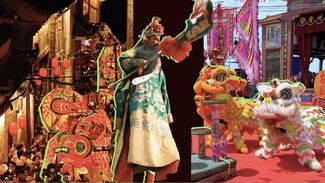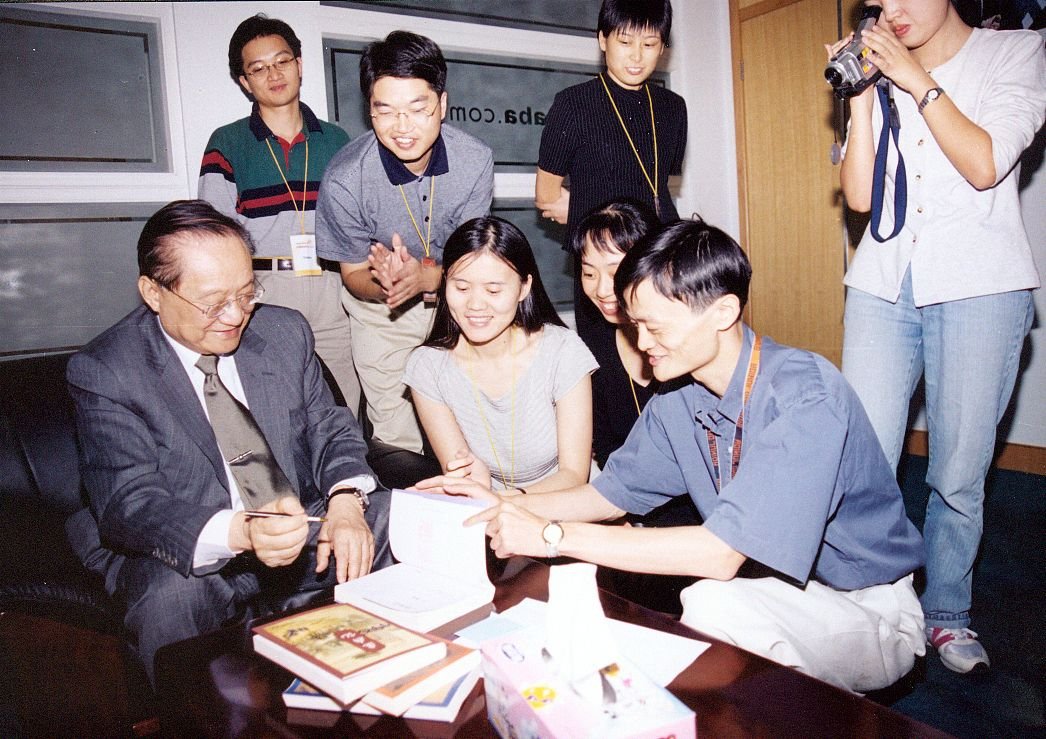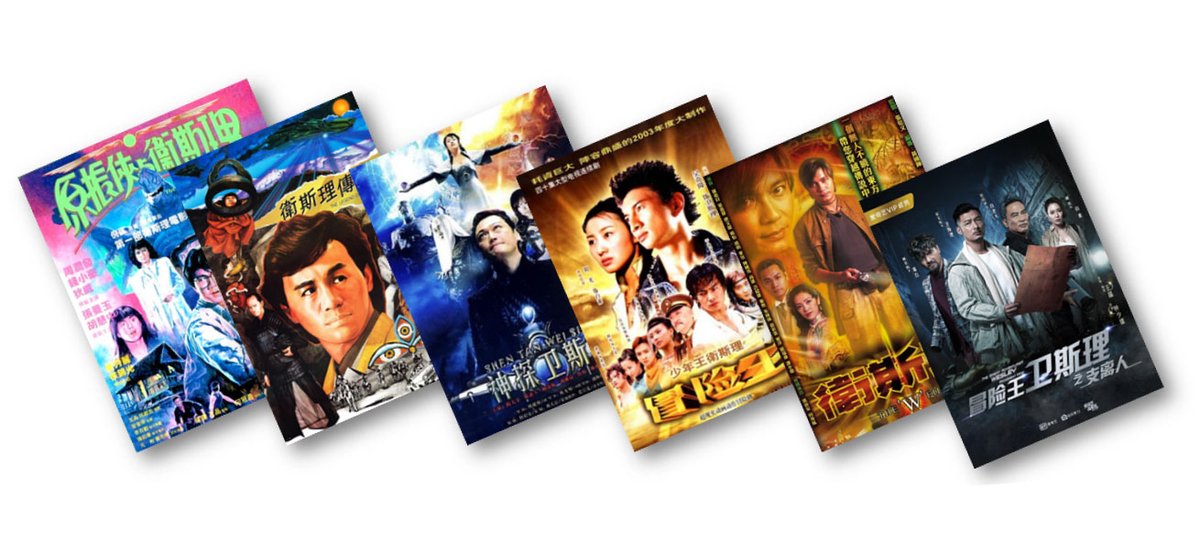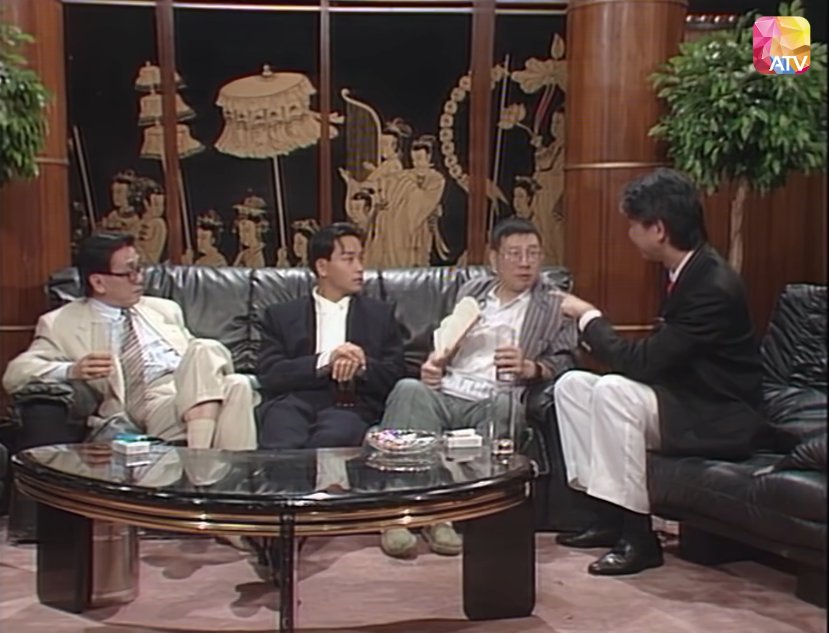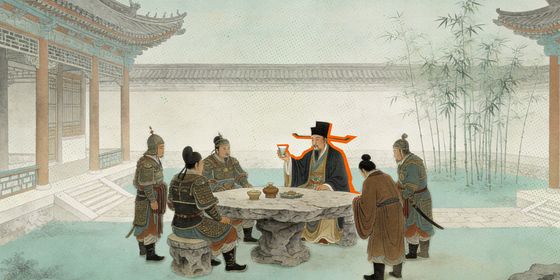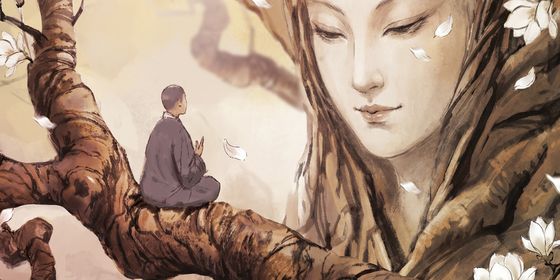With the death of the final member of the “Four Talents of Hong Kong,” TWOC revisits how these cultural figures influenced generations through their writing, wit, and screen presence
On June 25, 2025, renowned writer and food connoisseur Cai Lan passed away in Hong Kong at the age of 83. To many, his death marked the end of an era, as he was the last surviving member of the “Four Talents of Hong Kong,” alongside his close friends Jin Yong, Huang Zhan, and Ni Kuang.
Though none of the four were born in Hong Kong, they played a defining role in shaping the city’s cultural landscape—and at times, its political discourse—through their writing and on-screen presence during the late 20th century. All of them still have a huge devoted fan base who cherish their novels, songs, films, TV dramas, and variety shows—works that, for many, represent the golden age of Hong Kong.
That’s not to say the four have been free from controversy, especially as time passes and the standards for evaluating a cultural figure’s legacy evolve. TWOC has put together a quick snapshot of their life stories, so you can decide for yourself what to make of this “end of an era.”
Cai Lan 蔡澜
“I believe I’ve lived more splendidly than common people,” then-75-year-old Cai Lan (also known as Chua Lam) summarized his life on the Chinese talk show Thirteen Guests in 2016. The Singapore-born Hong Kong transplant spent around four decades in the film industry, published more than 200 books, and hosted more than a dozen food and travel shows. He is best known as a food connoisseur and has been dubbed the “God of Food” by the media and public. He not only wrote and hosted programs on the subject, but also ran restaurants and related businesses.
Born in 1941, Cai began working for the movie studio Shaw Brothers—where his father, Cai Wenxuan, a writer and poet, had worked since the 1930s—at the age of 18. From handling tasks like purchasing and translating foreign films during his film studies in Japan to managing production after settling in Hong Kong in 1963, his film career spanned decades, lasting until the late 1990s and including productions such as Jackie Chan’s Wheels on Meals (1984) and Mr. Nice Guy (1997).
However, his popularity truly soared through his writings on food, travel, relationships, and life philosophy—beginning with columns in publications like Jin Yong’s Ming Pao newspaper in the 1980s, and later through his television appearances. In 1989 and 1990, Cai’s first show, Celebrity Talk Show, which he co-hosted with friends Huang Zhan and Ni Kuang, featured candid conversations with celebrities about life, food, and sex—often over drinks and cigarettes—and achieved a record-breaking audience rating of 70 percent.
His lighthearted, pleasure-centered philosophy of life—which he summed up as 吃吃喝喝 (literally “eating and drinking”)—captivated millions, including his friend Jin Yong and a younger generation of fans. On the microblogging platform Weibo, where he had over 10 million followers, many turned to his comment section or writings in search of guidance and comfort in moments of doubt or confusion.
Jin reportedly praised Cai as a “truly unrestrained” person, who “knows about wine, women, business, film, and food…and to be sincere, unrestrained, and lighthearted toward life. Particularly, he can dismiss the losses and other unpleasant experiences with a genuine laugh.”
While his death prompted an outpouring of mourning from the media, fans, and acquaintances—including Jackie Chan and renowned food documentarian Chen Xiaoqing—it also reignited longstanding controversies. Some questioned his inclusion among the “Four Talents of Hong Kong,” citing the absence of any significant literary masterpiece beyond his essays and columns. Others criticized his attitudes toward women, such as his boast in a 2016 episode of Thirteen Guests about having had “61 girlfriends” (though he claimed this was before his marriage at age 53). More seriously, Cai faced accusations of coercing Chinese actress Pauline Chan into starring in one of several adult films he produced.
Jin Yong 金庸
Jin Yong, born as Louis Cha Leung-yung in Zhejiang province in 1924, is perhaps one of the most influential Chinese writers around the world. Ni Kuang, a fellow Hong Kong writer and a good friend of Jin Yong, has famously said, “Wherever there are Chinese people, there are readers of Jin Yong.”
His wuxia novels, such as The Legend of the Condor Heroes (1957 – 1959), Demi-Gods and Semi-Devils (1963 – 1966), and The Smiling, Proud Wanderer (1967 – 1969), have sold hundreds of millions of copies worldwide. The film and TV versions of these books, which aired mostly in the late 1990s and early 2000s, have become a fond memory for generations of Chinese people. Even now, new adaptations of Jin Yong’s classics continue to hit the screen, despite the wuxia genre’s waning popularity.
However, compared to his role as a novelist, Jin Yong’s other ventures—as a screenwriter and director, businessman, and even political figure—have received far less attention.
In 1948, Jin Yong was transferred from Shanghai to Hong Kong by Ta Kung Pao, where he had been working as a translator and editor. In the following decade, he tried his hand at screenwriting and film criticism under a different pen name and even co-directed two films.
In 1959, he founded Ming Pao in Hong Kong and serialized some of his most famous novels in the daily newspaper. But more importantly, he wrote most of the paper’s editorial commentary, which elevated his public profile as a political voice and significantly boosted the paper’s sales. Ming Pao Enterprises went public in 1991 with him as chairman. Shum Sai-shing, author of Past Stories of Jin Yong, told The Paper in an interview last year, “It’s rare to find someone who writes such excellent novels and can also make a fortune in business. It’s not easy. Most writers aren’t suited for doing business.”
Jin Yong was also a member of the committee that drafted Hong Kong’s Basic Law in the late 1980s, ahead of the end of colonial rule—a framework that remains in effect today. His 1981 meeting with Deng Xiaoping created a media sensation, and his novels were subsequently published on the Chinese mainland, quickly gaining immense popularity.
Though he officially retired from politics and business in 1993, Jin Yong didn’t settle into a quiet life. In 2005, he went to London to pursue a master’s degree at Cambridge University and earned his doctorate in 2010, at the age of 86, with a dissertation on imperial succession during the Tang dynasty (618 – 907). In 2009, he enrolled in another doctoral program at Peking University, but didn’t finish his studies there due to health reasons.
Jin Yong passed away in 2018 in Hong Kong. Aside from his influential martial arts novels, he left behind a personal example of intellectual curiosity and lifelong commitment to self-improvement that continues to resonate with readers across the Chinese-speaking world and beyond.
Ni Kuang 倪匡
Ni Kuang, who passed away in 2022 at the age of 87, is best known for his Wesley series, widely regarded as introducing sci-fi to a generation of Chinese mainland readers in the 1990s. First published in Hong Kong in 1963, the series spans 145 novels and features Wesley, a hot-headed yet righteous protagonist whose adventures captivated audiences across decades.
Ni’s whimsical plots take Wesley—a wealthy CEO who never has to work a day in his life—on perilous journeys across five continents, from the ocean’s depths to the Earth’s core, as he investigates all kinds of supernatural phenomena. These range from a fox spirit and a blue-blooded woman to an elevator that can transport passengers to another dimension, and even memories of past lives. Martial arts-savvy and multilingual, Wesley ultimately traces most of these mysteries to aliens and alien technology. While some sci-fi fans have criticized the series as “soft”—meaning it lacks grounding in real scientific principles—the series achieved tremendous popularity among Chinese readers for its vivid characters and wildly imaginative storytelling.
Ni’s early life was just as adventurous and controversial as the stories he would later write. Born in Shanghai as one of seven siblings, he joined the Chinese Liberation Army at the age of 16 after graduating from junior high school, and later worked for the Public Security Bureau of Inner Mongolia. In 1956, after allegedly being accused of “anti-revolution” behavior, he fled his post and made his way to Guangzhou, where he boarded a ship to Hong Kong.
Initially supporting himself with manual labor, Ni soon discovered his talent for writing could sustain him in Hong Kong, then entering its golden age of publishing. His first job was writing for a pro-Kuomintang newspaper, and later publishing a few martial arts stories in Ming Pao. Encouraged by Jin Yong, Ni went on to publish his famous series under the pen name Wesley.
Ni was an extremely prolific writer, having authored an estimated 500 novels (some under different pseudonyms) and 400 movie and television scripts, not to mention countless essays and commentaries. In 2012, Ni was honored with the Lifetime Achievement Award at the Hong Kong Film Awards, recognizing his creation of iconic characters and stories that shaped an era of cinema. Following his passing in 2022, readers across the Chinese community deeply mourned the loss of his remarkable talent and his enduring contribution to Chinese literature—the undying spirit of adventure that became his signature.
Huang Zhan 黄霑
Better known as James Wong Jim, Huang Zhan earned global recognition for his boundless creativity in various fields. A legendary lyricist, songwriter, film producer, and talk show host, he emerged as one of Hong Kong’s most iconic cultural figures in the 20th century.
Born in the 1940s in Guangdong, Huang played a crucial role in the rise of Cantopop and Hong Kong cinema, earning himself a reputation as the godfather of Hong Kong pop music. During his four-decade career, Huang also witnessed the rise and fall of the music industry in Hong Kong.
Huang’s prolific output—more than 2,000 lyrics—blended Cantonese slang with classical Chinese, becoming a staple of the city’s pop culture. Many of his works have become iconic TV theme songs, such as Ask Me and The Shanghai Bund, constantly evoking nostalgia across generations. Inspired by traditional Chinese pentatonic notes, Huang’s song A Laugh at the World for the 1990 wuxia epic Swordsman (adapted from The Smiling, Proud Wanderer) captured the rebellious spirit of Jin Yong’s novel, and remains a beloved anthem for those who grew up in the 1970s and 1980s. In 1991, the song also won the Hong Kong Film Award for best original film song.
While widely celebrated for his musical talent, Huang also shocked audiences with his vulgar jokes on talk shows. In 1983, he even published a best-selling collection of over 200 dirty jokes, including everyday foul language. The book has since been reprinted more than 60 times, setting a record in Hong Kong’s publishing industry. His creativity also extended to advertising jingles, including “Two kids are good enough” for the Family Planning Association of Hong Kong in 1975.
Beyond his artistic achievements, Huang’s personal life, marked by several high-profile marriages and affairs, often drew public scrutiny and debate. During his battle with lung cancer, Huang continued his pursuit of knowledge, earning a PhD in sociology from the University of Hong Kong before passing away in 2004 at the age of 63.

